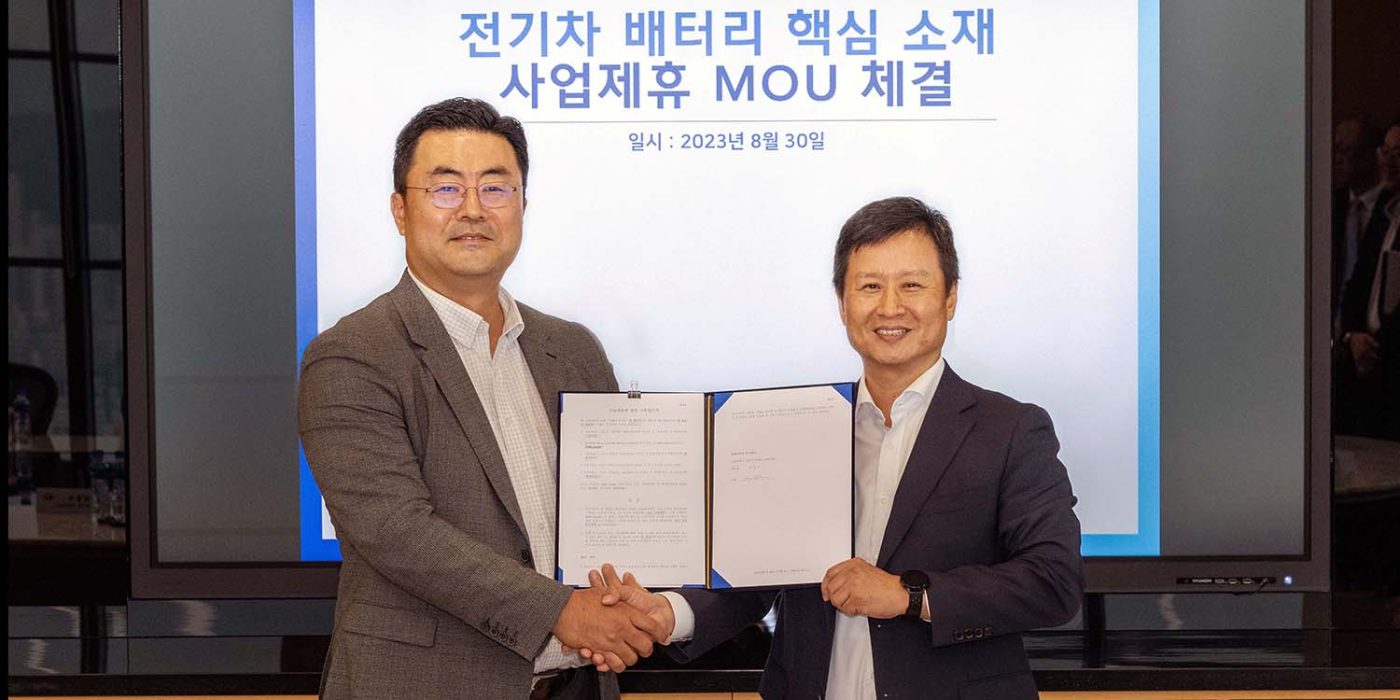Hyundai hitches to the nickel supply chain via Korea Zinc
Hyundai Motor Group has agreed a comprehensive cooperation with Korea Zinc along the entire nickel value chain for EV batteries. The partnership covers the joint procurement and processing of raw materials through recycling.
Aside from procurement and processing, “ensuring a stable supply of processed nickel and battery materials, and exploring new businesses, including battery recycling,” is among the stated targets.
The Hyundai Group also takes a financial stake of 527.2 billion won (366 million euros) in Korea Zinc and will hold five per cent in the company in return. Hyundai also secured the right to suggest one non-executive director.
Moreover, Hyundai plans to source half of the nickel required for its electric car batteries in the US through Korea Zinc by 2031. To stay eligible for subsidies laid out in the Inflation Reduction Act (IRA), both companies want to “invest in mine development projects to source raw materials that meet IRA requirements.” The European Union’s Critical Raw Material Act (CRMA) requirements are also to be met.
The cooperation also does not come out of the blue. Korea Zinc established a subsidiary in 2017 to produce nickel sulphate for EV batteries and will supply the Hyundai Group with nickel from 2026.
At the same time, the agreement is still a declaration of intent, which representatives of both companies signed in Seoul this week. There is no binding agreement yet. However, HMG Global, a joint venture of Hyundai Motor, Kia and Hyundai Mobis, is set to buy the shares of Korea Zinc worth €366 mn on 12 September.
Korea Zinc wants to use the money to expand its production of nickel battery materials. Specifically, a new subsidiary shall produce precursors for electric vehicle batteries. In addition, Korea Zinc plans to build a nickel smelter in the Ulsan industrial complex this year. Hyundai also has a large vehicle plant in the port city.
In November 2022, Korea Zinc had also entered into a cooperation agreement with LG Energy Solution. In addition to the supply of nickel materials, LGES was eager to utilise Korea Zinc’s smelting technology that enables the recovery of metals and manufacturing of high-purity metals. The deal also provided for mutual financial participation through a share swap.
Hyundai presented its current eMobility strategy in April 2023, aiming for a spot among the world’s top three electric carmakers by 2030. To achieve this, the South Korean company wants to invest up to 24 trillion won (€16.6 bn) to increase production and exports.





0 Comments